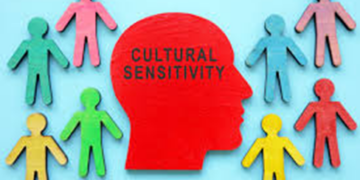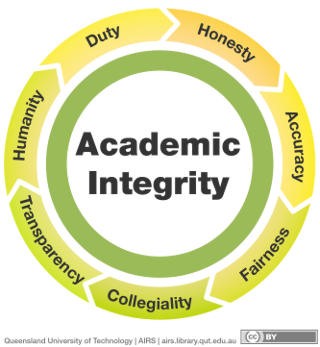Follow ethics in research
The research in academics is built on a foundation of trust. On a similar topic simultaneously many researchers work across the globe; they trust that the results reported by others are true and sound. Research ethics involves the application of fundamental ethical principles to a variety of topics linking research which includes verity of educational streams. Society trusts that the results of research reflect an honest attempt by scientists and other researchers to describe the world accurately and without bias. But this trust will continue only if the scholarly community devotes itself to typify and transmit the values associated with ethical research conduct.
Research malpractices include the design and implementation of research involving redundant human experimentation, animal experimentation, various aspects of academic scandal, including scientific misconduct such as fraud, fabricated data, plagiarism, pseudo conclusions and observations, unruliness of research, etc. Research ethics is most developed as a concept in medical research because it involves animal experimentation. While animal rights activists protest the use of animals in scientific experimentation, proponents of animal experimentation argue the logical warrant for the practice. Show proper respect and care for animals when using them in research. Do not conduct unnecessary or poorly designed animal experiments. About 20 million animals are experimented on and killed annually, three-fourths for medical purposes and the rest to test various products. An estimated eight million are used in painful experiments. Reports show that at least 10 percent of these animals do not receive painkillers. Animal rights advocates are pressing government agencies to impose heavy restrictions on animal research. But this growing criticism of painful experimentation on animals is matched by a growing concern over the threat restrictions on the use of animals would pose to scientific progress. Whether such experiments should be allowed to continue has become a matter for public debate.
Remember, your research should contribute to the betterment of society. It is your responsibility to secure the actual permission and interests of all those involved in the study. You cannot misuse any of the information discovered, as a researcher, you have moral responsibility towards the participants. There is a duty to protect the rights of people in the study as well as their privacy and sensitivity. The confidentiality of those involved in the observation must be maintained all through, keeping their anonymity and privacy secure. If you your taking help of some whistle blowers, respect their contribution while protecting their welfare.
There are several reasons why it is important to adhere to ethical norms in research. First and foremost, you should comply with the aims and objectives of your research, such as knowledge, truth, and avoidance of error. For example, if your topic is ‘whether entrepreneurs are made or born’ your objectives have to fall in the framework of finding whether they are born or they can be motivated and made entrepreneurs. Remember, you are prohibited against fabricating, falsifying, or misrepresenting research data. Your outcomes are supposed to promote the truth only. Second, since research often involves a great deal of cooperation and coordination among many different people in different disciplines and institutions, ethical standards are appreciated in collaborative work, such as trust, accountability, mutual respect, and fairness. For example, many ethical norms in research, such as guidelines for authorship, copyright and patenting policies, data sharing policies, and confidentiality rules in peer review, are designed to protect intellectual property interests while encouraging collaboration.
I am sure, no researcher will like his/her credit for the genius work done, to be stolen by others. Also, please don’t forget a fact that your research work is answerable to the public at large. In India of late all PhD thesis are uploaded on UGC website; I believe many PhD holder’s work was questioned for various reasons for instance some copied research work from other’s thesis was withdrawn and the PhD awards also discarded. We cannot escape centralized policies on research conduct any longer. As citizens of this great nation, we should not publish poor standard work anymore.
Given the importance of ethics for the conduct of research, it should come as no surprise that many different professional associations, government agencies, and universities have adopted specific codes, rules, and policies relating to research ethics. Many government agencies, such as the Indian Institute of Science (IIS), the National Science Foundation (NSF), the Food and Drug Administration (FDA), Indian Council for Medical Research (ICMR), the National Environment Protection Authority (NEPA), UGC and the Department of Agriculture have ethical rules and regulations drafted for funding researchers, which cannot be overruled.
If you want to get pleasure from your journey of becoming a researcher with authenticity and consistency please follow few values and your will be successful forever.
Honesty: Strive for honesty in all your communications. Honestly collect, assess and report data and results. Don’t go for shortcuts, Follow methods and procedures, and publication grades. Do not fabricate, falsify, or misrepresent data. Do not deceive colleagues, granting agencies, or the public at large.
Have clear objectives of your research: Avoid bias as far as possible in experimental design, data analysis, data interpretation, peer review, personnel decisions, collecting grants if any, expert testimony, and other aspects of research where objectivity is expected or required. Self-deception is worst. Disclose personal or financial interests that may affect research.
Alertness: Avoid careless errors and negligence; always carefully and critically examine your own work and the work of your peers. Keep good records of research activities, such as data collection, research design, correspondence with agencies or journals, have neat and clean bibliography prepared simultaneously. Keep your promises and agreements, be sincere and strive for consistency of thought and action.
Sincerity: Share data, results, ideas, tools, resources. Be open to criticism and new ideas. Protect confidential communications, such as papers or grants submitted for publication, personnel records, trade or secrets.
Respect Intellectual Property of others: Honor patents, copyrights, and other forms of intellectual property. Do not use unpublished data, methods, or results without permission. Give credit where credit is due. Give proper acknowledgement or credit for all contributions to research. Avoid plagiarism. Respect each one’s contribution to your work. Respect respondents of your research work. Treat your assistants such as data entry operator, printer, binder, and your colleagues fairly.
Your publication is accountable: Publish in order to advance research and scholarship, not to advance just your own career. Avoid wasteful and duplicative publication. Strive to promote social good and prevent social harms through research of any kind.
Expertise: Maintain and improve your own professional competence and expertise through lifelong education and learning; even after getting your doctoral or postdoctoral degree update yourself – do not end your learning. Take steps to promote competence in your area of work.
Legality: Know and obey relevant laws and institutional and governmental policies. Don’t cut short any rule or regulation, you might come into some trouble if you do so – if not now in future.
Handle your topic with dedication: When conducting research on human subjects minimize harms and risks and maximize benefits; respect human dignity, privacy, and autonomy. Take special precautions with vulnerable populations; and strive to distribute the results of your research fairly.


















































